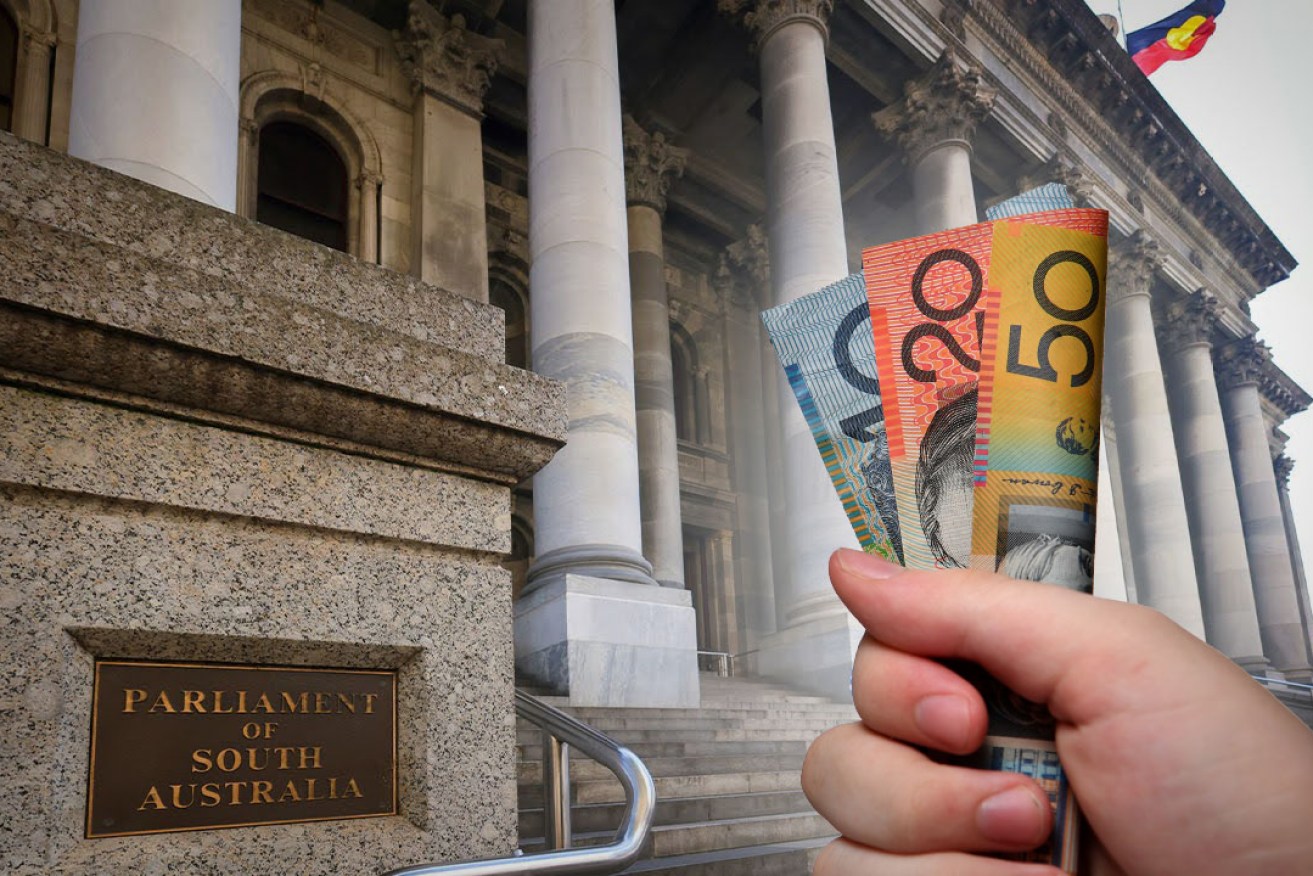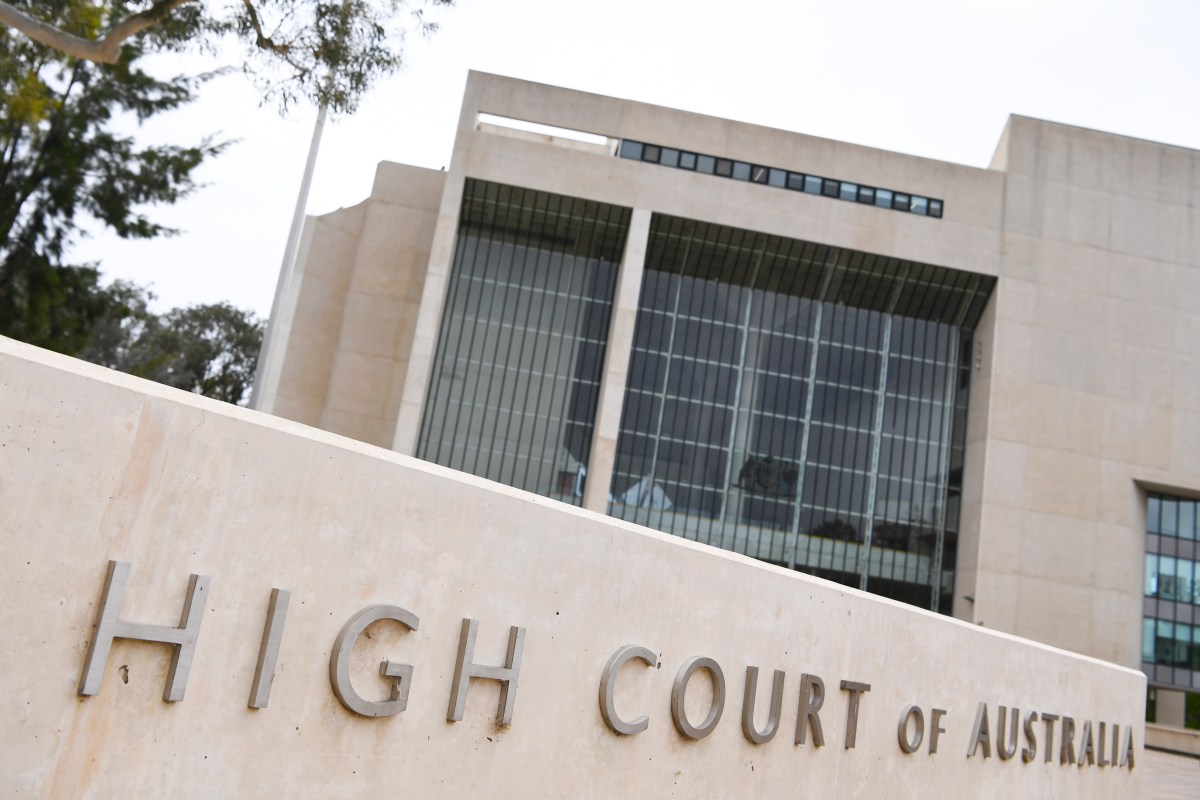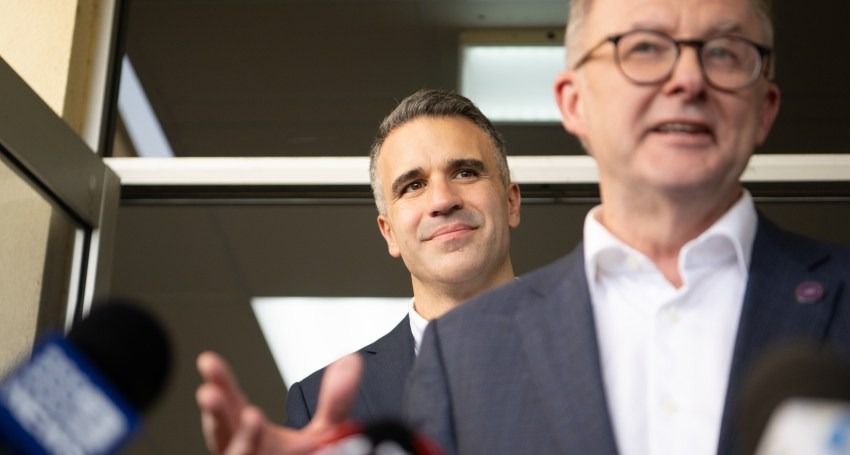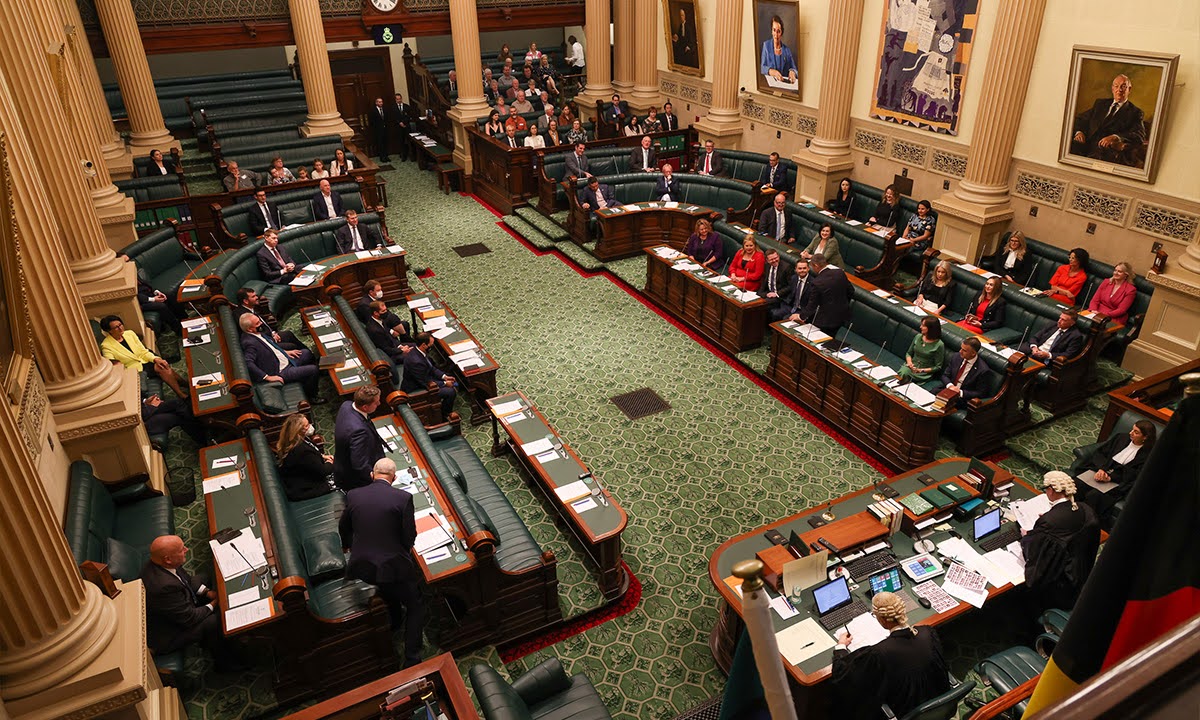Why Labor’s political donations ban is stuck in a legal quagmire
Premier Peter Malinauskas has conceded that designing laws to ban political donations has been “technically very difficult” and more complex than he initially thought, with experts saying the election promise faces numerous unanswered questions.


Businesses and unions would be banned from making donations to South Australian political parties at the 2026 state election under Labor's yet to be implemented plan. Photo: Tony Lewis/InDaily
Labor pledged before the March 2022 state election to ban political donations from individuals, businesses and unions in a bid to improve public confidence in political parties and the election process.
The move would likely see the major parties shift to a public funding model for elections and mark the end of party fundraising arms like Labor’s SA Progressive Business.
Attorney-General Kyam Maher said in August 2022 that the Attorney-General’s Department along with “the best legal advisers in South Australia” began working on how to implement the donations ban “almost immediately after we won office”.
But the Malinauskas government is still yet to bring legislation to parliament outlining the details of its policy despite indicating it would have the laws ready by late 2023.
Malinauskas on Thursday said that an “awful amount of work” has gone into drafting the laws so they can stand up to a legal challenge.
He said while the policy was “technically very difficult”, it is the government’s “intention” to introduce legislation to parliament this year.
“What we’re up against is a suite of High Court decisions that have made clear that, in certain forms, donations should be permittable or couldn’t be excluded,” the Premier said.
“What Crown Law and Parliamentary Counsel are navigating is a piece of legislation that achieves the high order public policy objective of taking money out of politics and not offending High Court decisions so the law stands up.
“Now at some point, the rubber’s going to hit the road and maybe that gets tested and so be it, but what I don’t resile away from is the principle here.
“This is not in our political interest – if anything, I think the opposite is true. But just this is one I committed to before the election… and we’re determined to act on that.”
Asked whether the donations ban was “a lot more complex than you thought going in”, Malinauskas said: “I think that’s a fair analysis.
“Just on the basis of that Crown Law advice that we keep getting back.
“Cause we keep going ‘well how about if we take it this way or address it that way’ and constantly you come back with a challenge legally.”
But the Premier insisted that the complexity involved in drafting the laws would not water down the final policy outcome.
“I think our outlook is clear. What we have to acknowledge that with law reform of this nature, there will be people who may want to test it,” he said.
“We just want to make sure that any legislation gives us the best chance of withstanding those tests in a court.”

The High Court has been a stumbling block for political donation bans in other jurisdictions. Photo: Lukas Coch/AAP
Malinauskas has publicly supported tighter political donation laws since at least 2012 when he was state secretary of the Shop Distributive and Allied Employees Association (SDA).
The union, which is the power base of Labor’s dominant Right faction, contributed $94,001 in affiliation fees to the ALP in the first half of 2023 – the biggest contribution of any union, association or individual for that reporting period.
The Liberal Party, meanwhile, has benefitted from generous donations – some totalling nearly $450,000 over a financial year – from Chinese businesswoman Sally Zhou.
Defence contractors and property developers – including Walker Corporation and Pelligra Group – have previously tipped into the Liberal cause, while the SA branch of the Australian Hotels Association has been a lucrative fundraising source for both major parties.
The pub and gambling lobby reportedly donated nearly $398,000 to South Australian political parties between 2015 and 2020, according to an ABC analysis.
Malinauskas said both business and union donations “have got to go” under the donations ban otherwise it would lack integrity.
“When I announced this policy in the lead up to the last election, not everyone in the Labor Party was in support of it,” Malinauskas said.
“But I really believe people in positions of high office have a responsibility to think about how we improve our democracy.
“Democracy is fragile, we’ve seen that around the world lately, and I believe we can improve our democracy by eliminating money from politics.
“So yes, we are determined to achieve this.”
‘No template’ for SA’s donation ban proposal
One of the key questions hanging over South Australia’s political donations ban is how it will interact with other jurisdictions where donations are legal, according to Dr Rob Manwaring, associate professor at Flinders University’s College of Business, Government and Law.
Manwaring said the Malinauskas government’s policy was an “extraordinary” and “laudable” proposal but was unlikely to, at this stage, be replicated in other parts of the country.
“I don’t think it’s really been attempted in quite the full extent and format that’s being proposed,” he said.
“So, there’s actually just like a lack of a template or a basis of knowing what this is going to look like and how it’s going to be regulated and enforced.”
Manwaring later said: “If this is going to work properly at the state level, it actually probably needs some harmonisation at the federal level too.
“And again, I don’t necessarily see a huge amount of appetite for this kind of a significant radical reform.”
Malinauskas wrote to a federal parliamentary committee in early 2023 urging it to consider banning political donations for national elections.
The Premier told the committee that it “may like to consider whether there is benefit in either alignment of state and federal laws in this area”. A state government spokesperson later told InDaily that a ban on political donations would work best at state and federal level given most parties contest elections at both levels.

Premier Peter Malinauskas and Prime Minister Anthony Albanese. Photo: Morgan Sette/AAP
Australian political parties also shift money between state and federal branches for operational reasons. Manwaring warned that “the truism is that money does tend to find a way” to influence political parties.
“So, the question is then if South Australia really is the outlier and it manages to achieve this legislation… will money find a way and will it seep through,” he said.
A cautionary tale can also be found in Brazil. In 2015, the South American country, rocked by corruption scandals, attempted to ban corporate political donations, but its efforts were largely unsuccessful, Manwaring said, because money was donated via “back door alleys and through other mechanisms”.
“You can sort of play a kind of political Whac-A-Mole really in trying to do this,” Manwaring said.
“So, it’s going to be largely untested to see how well it works. And no doubt, it could be a question of unintended consequences as well which we’re not sure of.”
Manwaring said funding mechanisms for minor parties and independents would have to be considered.
He also said one of the first visible consequences could be that political parties focus more on online advertising at the next state election rather than expensive TV and radio ads.
‘We shouldn’t be afraid of challenge’
The legal standing of South Australia’s donations ban will likely hinge on the High Court’s interpretation of the implied right to freedom of political communication in Australia’s constitution, according to Dr Joe McIntyre, Associate Professor of Law at UniSA Justice and Society.
Political donation caps imposed on unions in New South Wales have faced successful challenges in the High Court on the basis of infringing this implied constitutional freedom.
But the court has also recognised that there can be “legitimate constraints” on political donations, McIntyre said.
“(Political communication) is a right that can give way to other legitimate concerns,” McIntyre said.
McIntyre said if there are burdens to political communication (i.e. a donations ban), the court will look at whether that burden is legitimate and proportionate.
McIntyre suggested the Malinauskas government’s policy may stand a better chance at withstanding a court challenge because the donations ban is not as “nakedly partisan” as the former New South Wales’ Liberal government’s attempt to ban union donations.
“There is a valid and legitimate purpose that is being sought here, and then the question is going to be can we design something that is – yes, it’s burdening our communication but it’s only doing it in a proportionate way,” he said.
“We shouldn’t be afraid of challenge here. This is our democracy, we’re allowed to try and improve and we’re allowed to have debates and discourse with the court about where those limits are.
“That’s entirely appropriate in a constitutional democracy.”

South Australia’s two major parties would face a major change to their campaign financing if a donations ban was implemented. Photo: Tony Lewis/InDaily
Anonymous donations of more than $1000 and donations from property developers, or tobacco, liquor and gambling businesses are already banned in New South Wales.
Similarly in Queensland, anonymous benefactors are prevented from donating more than $1000, with property developers and their industry bodies also restricted.
McIntyre said he believes South Australia’s donation ban will eventually make it to the courts but it will require someone “who’s got standing” to make the legal challenge.
“I suspect eventually it would get to the court, but this is what this process now is to make sure when it gets to the court it stands up,” he said.
“There’s a risk tolerance. Just because somebody is going to bring a constitutional challenge doesn’t mean that we don’t do it.
“We’ve had two decades of parliaments trying to work out what the appropriate response to anti-terrorism legislation and anti-bikie legislation.
“Those types of legislations always put burdens on individuals and the… legislation is regularly challenged in the High Court.
“That doesn’t stop the parliament from trying to find another constitutionally valid way of doing it – this is just part of that transactional basis of how we make laws.”




